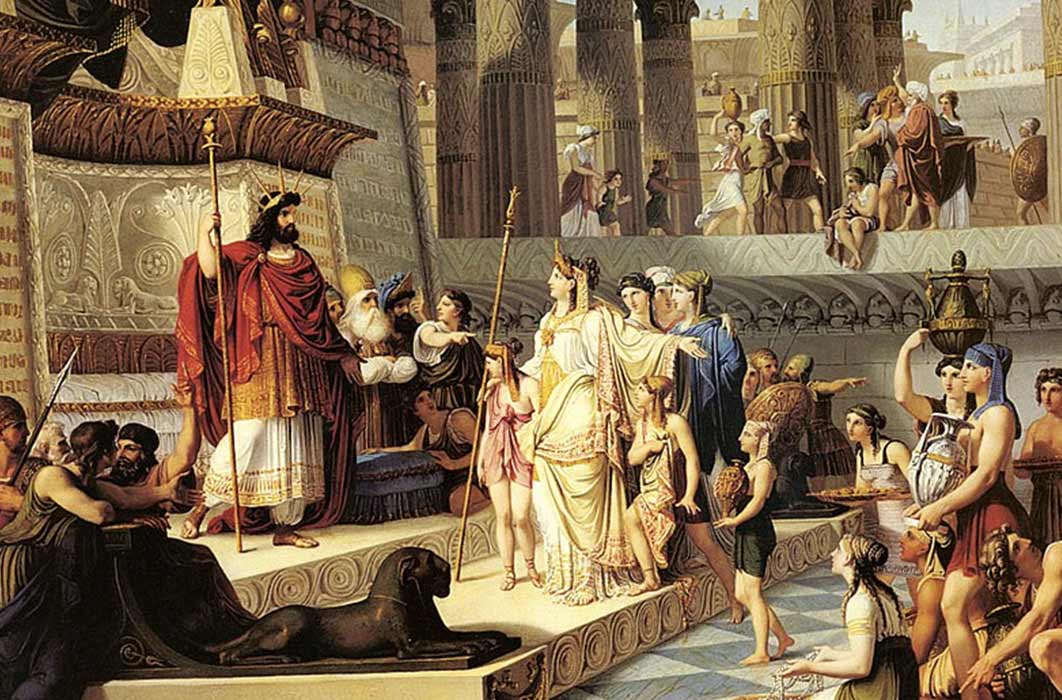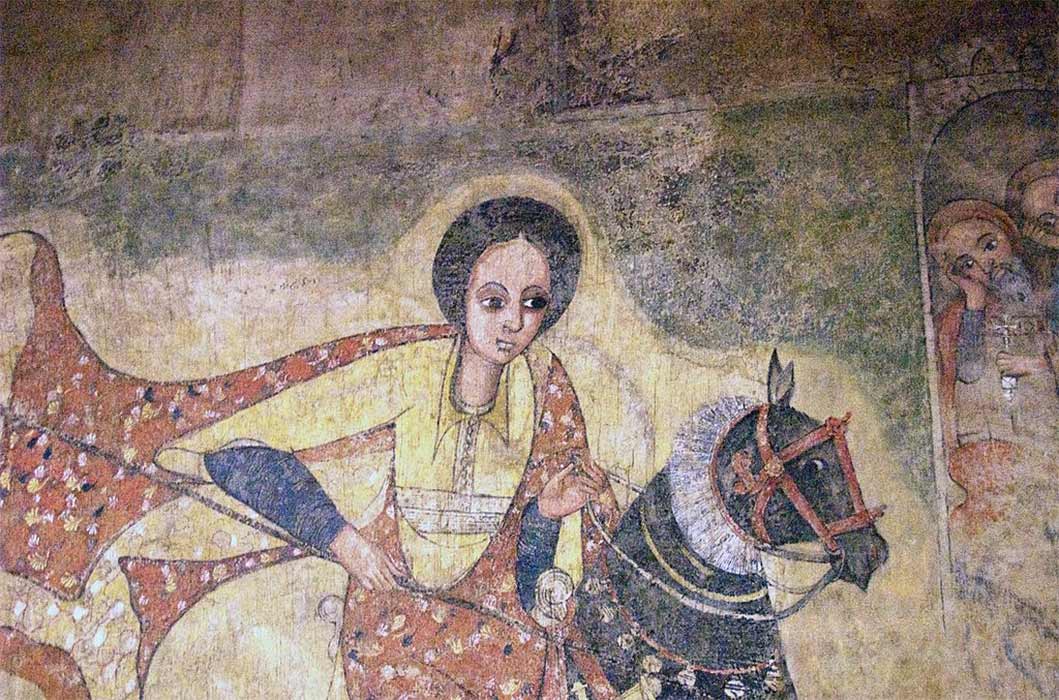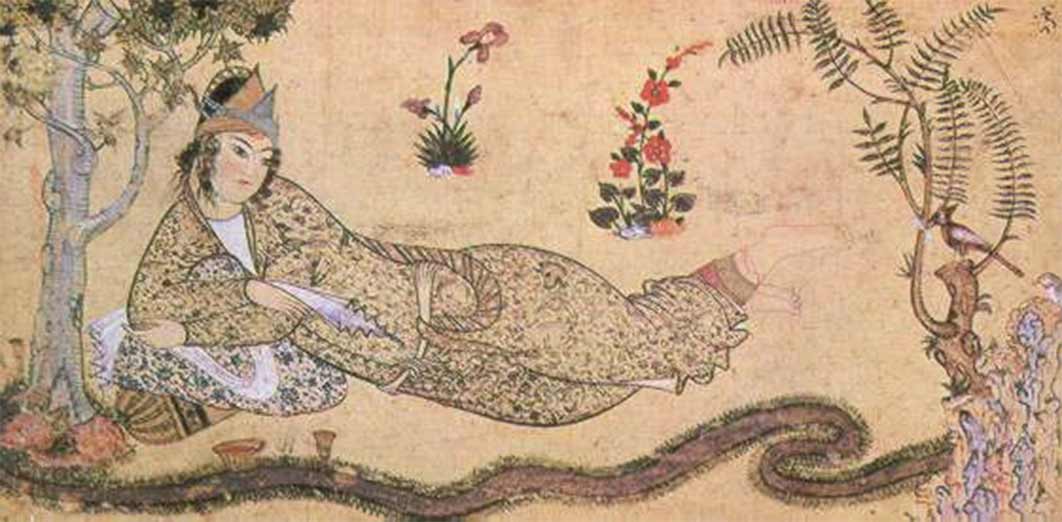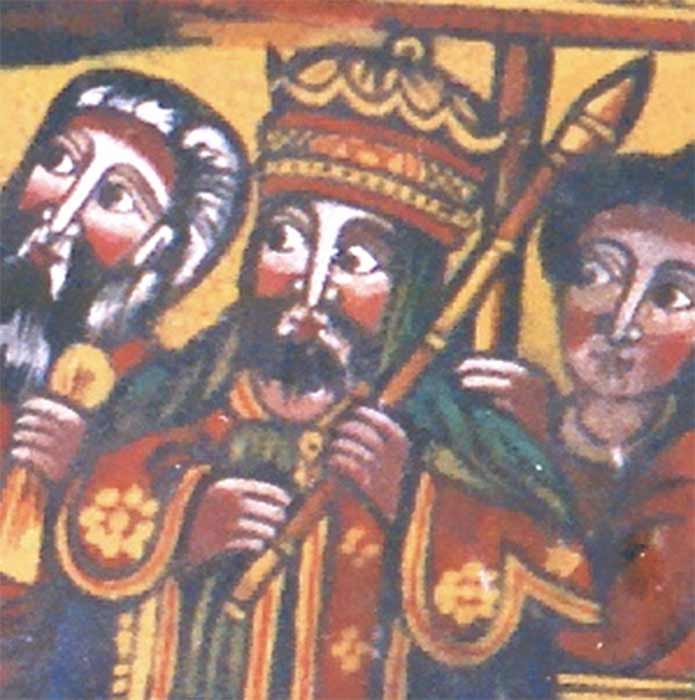
Connecting The Dots From Enoch To Sheba And Solomon
Jews of Ethiopia have long believed they were descended from King Solomon through the mysterious queen of Sheba. In I Kings, chapter 10, she is said to have traveled to Jerusalem to experience for herself the riches and wisdom of King Solomon, son of David and greatest of the Hebrew kings. If the event ever took place, it probably happened between 965 and 931 BC. She brought a caravan full of lavish gifts and seemed to be quite taken with the king himself. The Queen of Sheba said to the king: “The report I heard in my own country about your achievements and your wisdom is true. But I did not believe these things until I came and saw with my own eyes. Indeed, not even half was told me; in wisdom and wealth you have far exceeded the report I heard. How happy your people must be! How happy your officials, who continually stand before you and hear your wisdom! Praise be to the Lord your God, who has delighted in you and placed you on the throne of Israel. Because of the Lord’s eternal love for Israel, he has made you king to maintain justice and righteousness.” And she gave the king 120 talents of gold, large quantities of spices, and precious stones. Never again were so many spices brought in as those the queen of Sheba gave to King Solomon.

17th-century AD painting of the Queen of Sheba from a church in Lalibela, Ethiopia. National Museum of Ethiopia in Addis Ababa (CC BY-SA 2.0)
Who Was Sheba
Here is the problem. No one really knows who the queen of Sheba was or where she came from. There are two traditions: First: According to Arab and Islamic sources, the queen of Sheba was called Bilquis, and ruled over a nation on the southern Arabian Peninsula. It would have been located in what is now Yemen. Second: Ethiopian records have long claimed that she was called Makeda, and ruled over an empire based in northern Ethiopia.
There may be confirmation that one is dealing with history and not unsubstantiated legend, since archaeological evidence indicates that at the same time the mysterious monarch was said to have lived, Ethiopia and Yemen were ruled by a single dynasty for some four centuries. In other words, both traditions might be right. The queen of Sheba might have ruled over the entire empire of Ethiopia and Yemen.
When she departed from Jerusalem to return home, she appears to have taken with her more than Solomon's gifts of gold and silver. The story was told from generation to generation that Solomon was so smitten with Makeda, or Bilquis, or Sheba, that he invited her to stay in his wing of the castle. She agreed, as long as Solomon promised to make no sexual advances toward her.

Bilqis reclining in a garden, Persian miniature (c. 1595), tinted drawing on paper (Public Domain)
To this Solomon acquiesced, but, given his nature, he, too made a demand. He said he would not seek a physical relationship as long as she did not take anything that belonged to him. When she said yes, he invited her to dinner. But Solomon was crafty. He ordered a spicy, salty meal that she obviously enjoyed. Then he set out a pitcher of water by her bed. When she awoke with a great thirst following such a rich dinner, she drank the water and fell into Solomon's trap. He immediately entered her room and declared she had just stolen his water. Having forfeited her deal, she slept with Solomon that very night, causing one to wonder if she was really dumb or just flirting in her own, come-hither way. Whatever transpired, she returned to Ethiopia carrying Solomon's son, Menelik I.





